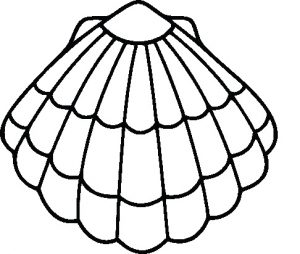Link to Rev Alison’s reflection video: https://youtu.be/vTjxXCMMmpo
2 Corinthians 4:7-15, Matthew 20:20-28
In the name of the living God, loving Father, precious Son and ever present Holy Spirit Amen
 There have been a few series of a programme called Pilgrimage on the BBC in recent years. A selection of celebrities with some faith, lapsed faith or none walking well known historic pilgrimage routes. The first one of these series followed the way of St James – who we remember today, which culminates at the Cathedral of St James – in Santiago de Compostella in Spain (which is thought to house St James’ mortal remains). This series featured amongst others the actor Neil Morrisey, Debbie McGee and Reverend Kate Bottley. The route they used was declared the first European cultural route in October 1987 and is known as the Camino. Back in March 2020 we began a Lent course based on a film about walking this route called the Way. It was also about a very unlikely group of pilgrims, and what they discovered about themselves along the route (just like the Pilgrimage TV show!). Sadly Covid lockdowns stopped us continuing.
There have been a few series of a programme called Pilgrimage on the BBC in recent years. A selection of celebrities with some faith, lapsed faith or none walking well known historic pilgrimage routes. The first one of these series followed the way of St James – who we remember today, which culminates at the Cathedral of St James – in Santiago de Compostella in Spain (which is thought to house St James’ mortal remains). This series featured amongst others the actor Neil Morrisey, Debbie McGee and Reverend Kate Bottley. The route they used was declared the first European cultural route in October 1987 and is known as the Camino. Back in March 2020 we began a Lent course based on a film about walking this route called the Way. It was also about a very unlikely group of pilgrims, and what they discovered about themselves along the route (just like the Pilgrimage TV show!). Sadly Covid lockdowns stopped us continuing.
Pilgrims have been walking the routes the camino includes (with various starting points France, Spain and Portugal) from the 9th century onwards. Technically pilgrimage is a devotional practice consisting of a prolonged journey, toward a specific destination of significance. I think it is more about the experiences on the journey as the ultimate destination. It combines the physical, with the spiritual and the emotional alongside simplicity in living. Pilgrimages are a feature of most world faiths not just Christianity.
The reasons for making a specific pilgrimage are many and various including in fulfilment of a vow, for forgiveness for sins, as a thanksgiving for life or as a means of intercession, among other reasons. I think, sometimes, we should view our whole lives as spiritual pilgrimages to help us cut through the complexity to get to the nub of what matters in our lives. – Our walk with God’s heartbeat guiding our next step. We can be so caught up with the cut and thrust of life, so taking things back to first principles can be helpful and help us to follow the path God would have for us.
Lets think about this a bit more by looking at the life of St James and what his spiritual journey or pilgrimage looked like! James often called the great was a Galilean fisherman who with his brother John (the sons of Zebedee) was one of the first disciples to be called by Jesus to follow him. He was there at some of the big moments in Jesus’ earthly life. He witnessed the transfiguration on the high mountain. The night before Jesus’ crucifixion James went to the Garden of Gethsemene and he slept whilst Jesus prayed.
James’s mother was a key figure in his life – and in our gospel reading we heard her asking whether James could sit with his brother at Jesus left and right hand in glory. We will never know how this came to pass exactly, but the level of anger from the other disciples, might well suggest that James and John may have encouraged their mother in making this suggestion! In a rebuff, James heard those words of Jesus calling for a life of service rather than lording over others, alongside moving away from political behaviours and jockeying for position. How much did this influence his spiritual journey (as well as the first-hand things he experienced?) Did this give him the courage and determination to do things he did after Jesus rose from the dead to spread the good news?.
Continuing with the things James experienced in his life pilgrimage, he was present for the resurrection appearances of Christ. He is then thought to have spread the good news to the Iberian peninsula and subsequently (about 14 years later) he was put to death by Herod Agrippa in Jerusalem. Herod hoped in vain that disposing of Christian leaders would stem the flow of those hearing the good news. It didn’t!
All of these experiences, the highs and lows formed James and his walk of discipleship. We can see as our epistle has it – that there were times when James was just as much a treasure in a clay jar as we are. Meaning he was vulnerable and fragile to making poor choices, and taking the power to ourselves, rather than the power coming from God. Clay jars can be very useful but break easily too. Just as all of our experiences, the highs and the lows form us. There are moments when we try to take God’s power and use it for our own means rather than making clear that this extraordinary power belongs to God and does not come from us.
 God can and does use our weaknesses just as much, if not more than our strengths in our pilgrimage through life. The pilgrims on the way of St James particularly use a scallop shell often hung around their necks as a symbol of their journey. There are a couple of pretty fanciful stories linking St James to these shells. I have reproduced some shells for us to use in a prayer activity later at the end of this reflection, but it would be useful to look at this picture below now.
God can and does use our weaknesses just as much, if not more than our strengths in our pilgrimage through life. The pilgrims on the way of St James particularly use a scallop shell often hung around their necks as a symbol of their journey. There are a couple of pretty fanciful stories linking St James to these shells. I have reproduced some shells for us to use in a prayer activity later at the end of this reflection, but it would be useful to look at this picture below now.
The shell connects us with our spiritual journey. They may remind us of the beginning of our walk with God. We use a scallop shell (or a silver replica) often in baptising new members of our church family. We are reminded of this as we take these promises on for ourselves if we were baptised as infants at confirmation.
The lines and the connections on the shell may remind us of our walk through this life and its many experiences. These lines radiate throughout the shell showing how these form us and interconnect. The triangular shaped peak of the shell reminds us of the three parts of God’s love for us, that connect with us and the lines and connections of our lives. God as Father, creator, God as son and saviour and God as spirit and guide. Our connection with God and God’s connection with us – radiates through all our experiences. Much as St Paul found in the first reading this morning, so the life of Jesus is made visible in our bodies too.
It is helpful to see this life in terms of spiritual pilgrimage, with our concentration only on the next step we need to take. That overused but actually helpful phrase is to say that life is a journey. Our lives are intertwined with God’s love for us and God’s hand guiding us to our ultimate destination. Safe and loved in his heart of love in this life and the life beyond our earthly existence. It is important to stick with each next step we take (as we would if walking a pilgrimage route of life), rather than getting caught up in where we have been and where we might end up. Staying in the present and most importantly in God’s presence in our uncertain and sifting times – this will give us the strength, courage and purpose we need for today. As well as through the grace of God, God’s eternal loving hope for all our tomorrows. Amen.
You may wish to spend some time with this shell image and write a prayer guided by God’s love for us for your next step in your spiritual pilgrimage in these uncertain times.
References: https://www.nationaltrust.org.uk/features/what-is-a-pilgrimage
https://www.bbc.co.uk/programmes/b09w7lcg (First BBC series of Pilgrimage).
